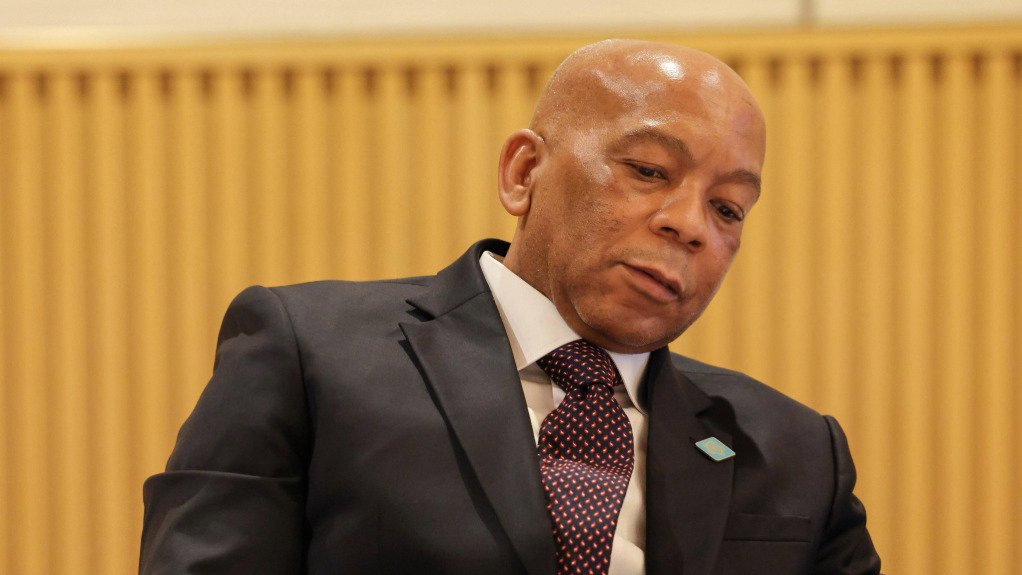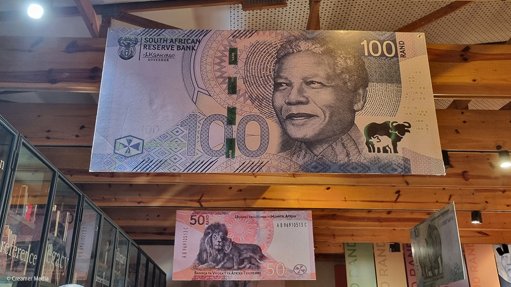Warning that qualifying criteria for private grid procurement could sideline domestic industry


Electricity and Energy Minister Dr Kgosientsho Ramokgopa says procurement timelines must be met to add credibility to ITP programme
Concern continues to be raised over the technical and financial criteria being used to prequalify bidders for South Africa’s inaugural independent transmission project (ITP) tender, which critics warn will marginalise domestic industry – notwithstanding a stipulation that there should be a minimum 49% South African equity participation.
Government has initiated a two-stage ITP procurement process, with the request for qualification (RFQ) documentation currently available for a non-refundable fee of R150 000 and with a submission deadline of September 23 having been set.
Qualifying consortiums will then be invited to respond to a request for proposals (RFP), which will be released after the prequalified bidders are named in November. Government anticipates setting a May bid submission deadline for the tender.
The prequalified entities will bid to build 1 164 km of powerlines and 2 630 MVA of transformation capacity across seven corridors during what has been termed ‘Phase 1’.
It is anticipated that a build, operate, own and transfer model over a term of between 25 and 30 years could be used. But the nature of the procurement model and the term will be made known only once the RFP is released, alongside how a fee-based Credit Guarantee Vehicle will be employed to derisk the projects in the absence of government guarantees.
The infrastructure is expected to unlock 3 222 MW of new renewables generation, especially in the Northern Cape and North West provinces, with subsequent and larger ITP procurement rounds anticipated thereafter.
The Independent Power Producer Office (IPPO), which is overseeing the procurement process, hosted a virtual conference for potential participants on August 26 that attracted more than 660 participants.
The conference was addressed by Electricity and Energy Minister Dr Kgosientsho Ramokgopa, who again underlined government’s desire to use ITPs to accelerate the roll-out of grid infrastructure, which was emerging as a physical constraint to adding new generation.
Given the scale of the investments to be built by both private ITP consortia and the National Transmission Company South Africa (NTCSA) over the coming ten years, Ramokgopa said government aimed to use the programme to stimulate domestic capability and industrial capacity.
The NTCSA’s Transmission Development Plan envisages the construction of 14 500 km of new powerlines and 133 000 MVA of additional transformers by 2034 at a cost of about R440-billion.
PREQUALIFICATION FRAMEWORK
During the online conference, several questions were raised about the qualifying criteria in the RFQ, including a criteria that project companies demonstrate prior contracting experience in relation to at least three ITP transmission line and substation projects that had been built in the past 15 years.
While the RFQ is seeking to prequalify project companies only, it has requested some demonstration of the project company's experience with engineering, procurement and contractor entities, or EPCs, that have designed, procured, constructed and commissioned ITP powerlines and substations.
In addition, a prequalifying project company would need to demonstrate that it had operations and maintenance contractor experience in relation to at least three extra high voltage powerlines and substations.
Given that Eskom and now the NTCSA has hitherto undertaken all transmission infrastructure development in the country, there is some concern that domestic entities are unlikely to be prequalified as the main project sponsors and that the first ITPs will, thus, be controlled by foreign companies.
There were also questions about what the local content requirements would be, given that, while the Public Procurement Act was in force, regulations in relation to the designation of specific components such as towers, cables and other equipment had not been developed, with only interim rules in place.
This point was also raised at a previous event focusing on the TDP by Steel and Engineering Industries Federation of Southern Africa (Seifsa) CEO-designate Tafadzwa Chibanguza. He argued that delays in finalising the country’s new public procurement framework had made previous local-content designations unenforceable and had posed a risk to government’s industrialisation aspirations.
STRUCTURED FOR SUCCESS
In response, IPPO interim head Elsa Strydom insisted that the 49% South African equity participation pointed to the priority being given to the localisation of the ITP programme even during Phase 1, which was the first-of-its-kind for the country.
However, she added that the procurement process had been structured to ensure success, which required that participants had some experience in the design, construction, operations and maintenance of such infrastructure, as well as in delivering projects on time.
Local participants, she said, were in a position to enter into partnerships to ensure that they could participate in Phase 1 and had not been excluded.
It was further clarified that the EPC contracting will be left to the ITP developer and that local companies would have an opportunity to partner as EPCs to deliver the projects.
Ramokgopa said the approach had been modelled on the renewable-energy procurement programme, which “started small” and increased in scale and in the number of participants over time.
However, he underlined government’s ambition to stimulate industrialisation through the ITP programme, as well as the NTCSA’s grid investments, and revealed that he was working with Trade, Industry and Competition Minister Parks Tau on those components that should be compulsory for local procurement.
The Minister stressed the importance, however, of kick-starting the programme within the timeframes outlined, which he said would build credibility.
He also acknowledged there should be no stop-start between procurement rounds to create the security of demand required for manufacturing investment.
Article Enquiry
Email Article
Save Article
Feedback
To advertise email advertising@creamermedia.co.za or click here
Press Office
Announcements
What's On
Subscribe to improve your user experience...
Option 1 (equivalent of R125 a month):
Receive a weekly copy of Creamer Media's Engineering News & Mining Weekly magazine
(print copy for those in South Africa and e-magazine for those outside of South Africa)
Receive daily email newsletters
Access to full search results
Access archive of magazine back copies
Access to Projects in Progress
Access to ONE Research Report of your choice in PDF format
Option 2 (equivalent of R375 a month):
All benefits from Option 1
PLUS
Access to Creamer Media's Research Channel Africa for ALL Research Reports, in PDF format, on various industrial and mining sectors
including Electricity; Water; Energy Transition; Hydrogen; Roads, Rail and Ports; Coal; Gold; Platinum; Battery Metals; etc.
Already a subscriber?
Forgotten your password?
Receive weekly copy of Creamer Media's Engineering News & Mining Weekly magazine (print copy for those in South Africa and e-magazine for those outside of South Africa)
➕
Recieve daily email newsletters
➕
Access to full search results
➕
Access archive of magazine back copies
➕
Access to Projects in Progress
➕
Access to ONE Research Report of your choice in PDF format
RESEARCH CHANNEL AFRICA
R4500 (equivalent of R375 a month)
SUBSCRIBEAll benefits from Option 1
➕
Access to Creamer Media's Research Channel Africa for ALL Research Reports on various industrial and mining sectors, in PDF format, including on:
Electricity
➕
Water
➕
Energy Transition
➕
Hydrogen
➕
Roads, Rail and Ports
➕
Coal
➕
Gold
➕
Platinum
➕
Battery Metals
➕
etc.
Receive all benefits from Option 1 or Option 2 delivered to numerous people at your company
➕
Multiple User names and Passwords for simultaneous log-ins
➕
Intranet integration access to all in your organisation



















